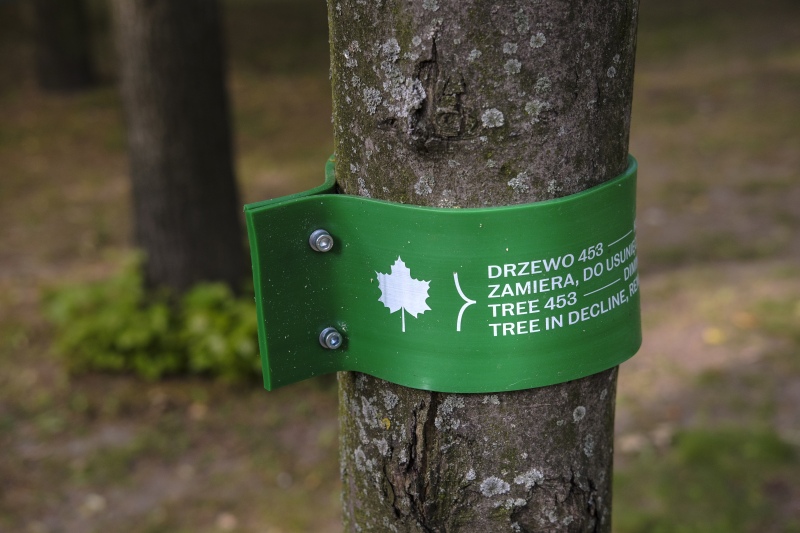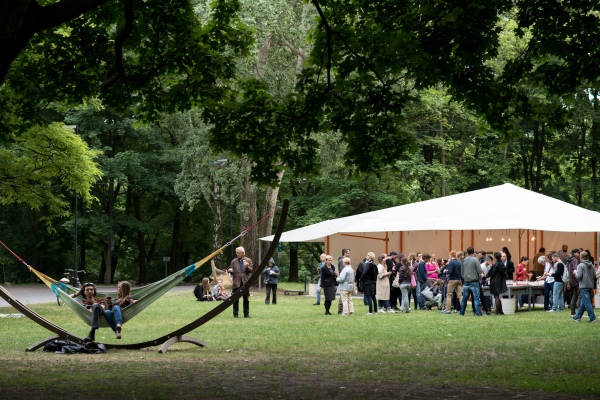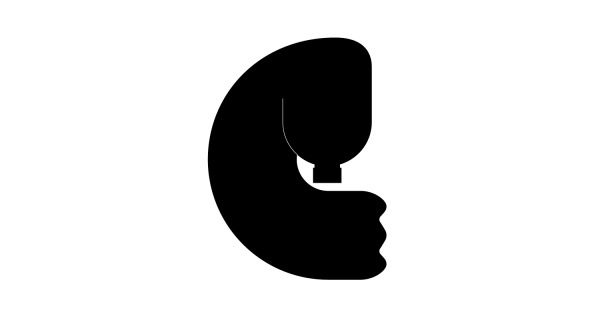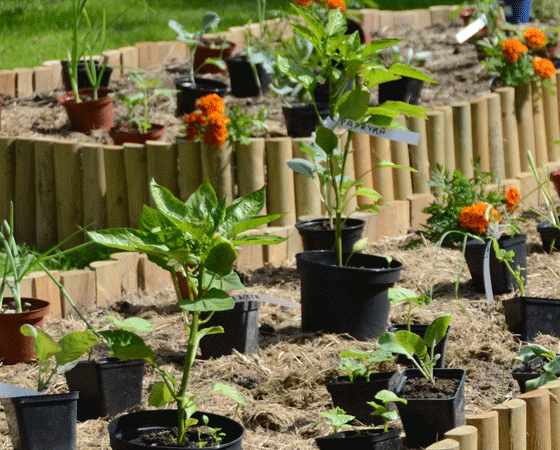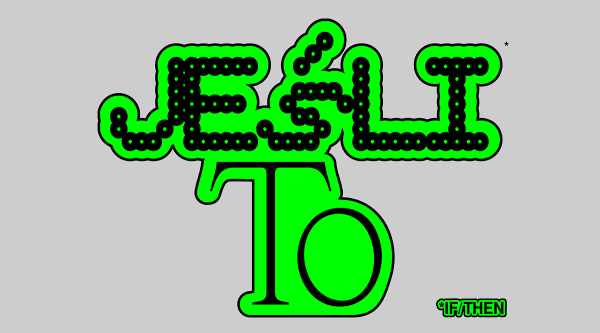Environment-focused activities at the Ujazdowski Castle Centre for Contemporary Art
In the face of the profound and irreversible environmental changes caused by human activities, we understand increasingly that concern for the environment is not only a matter of individuals and governments, but also institutions – including cultural institutions. Ujazdowski Castle Centre for Contemporary Art turns ecology into an object of artistic reflection and is actively involved in shaping the sense of responsibility for nature, especially locally.
For over a decade, as part of exhibitions and many interdisciplinary projects, we have been thinking about the impact of humans on Earth and disseminating knowledge about the climate crisis. These activities not only help to write new scenarios for the future of our planet, but also aim to change everyday practices and attitudes. At Ujazdowski Castle Centre for Contemporary Art, an environmental commission was created, with our staff developing a set of recommendations for institutions that would make it more environmentally friendly and sustainable.
For almost a decade, artists have been carrying out projects addressing the question of taking responsibility for our immediate environment in the vicinity of Ujazdowski Castle. In 2012, we launched the Green Jazdów project. Its theme was ecology, the questions of sustainable development and the search for alternative solutions to mass production and consumption. Over the course of three years, many residents of Warsaw spent summer weekends together in the vicinity of the castle, taking part in workshops and lectures regarding healthy living, urban gardening, permaculture and various ways to create an economy that could benefit our society. The project was carried out without the use of printed materials – information was provided exclusively online.
Many events in the vicinity of Ujazdowski Castle took place as part of our residency program – artists designed activities related to the park’s nature. Their goal was to use underused urban areas, as well as environmental education and engaging local residents. In 2012, Juliette Delventhal and Paweł Kruk founded a permaculture garden, ostensibly a space for growing vegetables, but also a meeting space.
In spring 2021, on the initiative of three U–jazdowski residents – Amy Pekal, Fleur Roggeman and Nadia Elamly – two composters were set up in the castle park. Designed by the artists and constructed together with U–jazdowski’s administrative and technical team, they are used to transform the institution's biological waste into life-giving compost, the “black gold of recycling.” The composters were created from recycled materials. The wooden panels used to build them were previously used in two projects – Jazdów City Garden and an installation by the Japanese group hyslom. (Support for the project was provided by Mateusz Skłodowski from the Education Lab of Warsaw University’s Botanical Garden).
The Slow Future exhibition (2014), curated by the Franco-Peruvian artist and activist Jota Castro, focused on the issue of degrowth, i.e. a movement that postulates breaking with the current paradigm of economic growth for a sustainable environment. Degrowth assumes the reduction of consumption, alternative forms of exchange and circulation of goods that are not based on profit, and the principles of slow life.
In the summer of 2015, Jazdów Archipelago took place, linking the green square between the Ujazdowski Castle and the Theatre Institute with the Finnish Housing Estates on the other side of Łazienkowska Route. Over the course of twelve summer weekends, a cultural and social map of Jazdów was created. In it, the various dimensions of the space – social, architectural, historical, landscape, environmental and even the soundscape– intertwine smoothly.
In 2016, the long-term project entitled Jazdów City Garden, curated by Anna Czaban, was launched. It was aimed at working with the park space and strengthening social responsibility for public space. It was an attempt to live in symbiosis with nature, learning about the area and listening to its needs. The 2018 edition, entitled Naturomorphic, focused on the study of human dependence on the environment and the question of the possibility of preserving biodiversity in the urban environment.
The turn of 2020 saw the launch of Plasticity of the Planet, a project curated by Jarosław Lubiak consisting of two simultaneous exhibitions: Human-Free Earth and Centre for Contemporary Nature by the investigative research collective, Forensic Architecture. Plasticity of the Planet confronted the irreversible damage to the environment, and an attempt to understand what kind of a planet can emerge as the result of these man-made changes. The exhibition by the Forensic Architecture collective examined crimes committed against nature in the context of political conflict. The exhibitions were accompanied by the Cinema of the Anthropocene series of film screenings, in which we wondered whether cinema and technology could help us rebuild our relationship with the environment.
The experience of the COVID-19 pandemic, a part of the climate crisis, is permanently transforming the functioning of institutions, as well as the existing models for the production and dissemination of culture. In the face of contemporary social and economic changes, but also the changes in our daily work, it becomes clear that care for the planet should now be at the centre of our thinking and designing a new reality.
